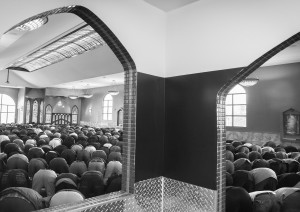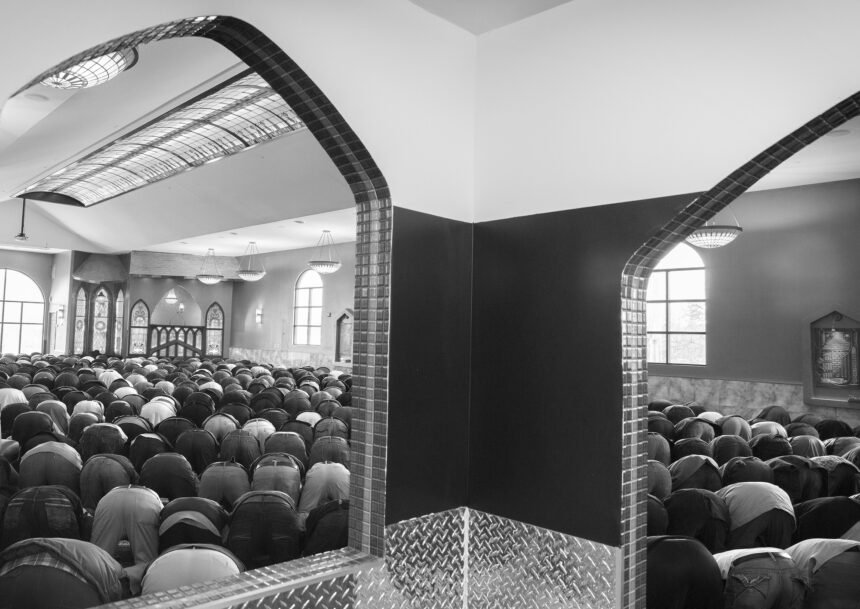By: MILA KOUMPILOVA , Star Tribune
Construction of the metro area’s newest mosque involved a shopping trip to the Middle East, some back-and-forth with the city of Minneapolis and a reported $3 million investment.
But developer Basim Sabri says setting out to build one of Minnesota’s largest mosques at his Karmel Square mall wasn’t a vanity project. Instead, the space — part of a major expansion at Karmel — was meant as a goodwill gesture to the local Somalis who rent and shop at the south Minneapolis mall.
 The expansion has tested Sabri’s famously tense relationships with the city and the mall’s neighbors, who have voiced concerns over parking and traffic issues. Part of the construction collapsed in May, cutting off electricity to the neighborhood and briefly stalling the project.
The expansion has tested Sabri’s famously tense relationships with the city and the mall’s neighbors, who have voiced concerns over parking and traffic issues. Part of the construction collapsed in May, cutting off electricity to the neighborhood and briefly stalling the project.
Since it opened earlier this year, the mosque has gotten rave reviews from a growing cadre of worshipers, who cover the sun-filled, 5,000-square-foot prayer hall completely when they kneel at Friday prayer.
“This mosque is not about showing off,” said Sabri. “It’s about need.”
The new mosque replaces a prayer room on the second floor that could not handle the crowds; worshipers spilled out into the mall hallways and, during the holy month of Ramadan, even the mall parking lot.
The space is on the newly added third floor of the state’s oldest Somali mall, where shops sell long skirts and scarves, henna tattoos, jewelry, handbags, rugs and Somali specialties such as savory sambusa pastries.
Sabri is also building a fourth floor and a three-story parking ramp.
He claims the new mosque is the largest in Minnesota, possibly even the Midwest. But the imam of another new Twin Cities mosque, Darool-Uloom, which moved into a former Catholic church on St. Paul’s East Side last summer, says it handily surpasses Karmel’s square footage to claim that distinction.
There, Imam Sheikh Hassan says the men’s prayer hall alone covers about 15,000 square feet.
Metro Islamic centers such as Al-Farooq Youth and Family Center in Bloomington and Abubakar As-Siddique in Minneapolis are larger overall, but their prayer spaces are more modest than Karmel’s.
In any case, says Abubakar Executive Director Ismail Haji, the services offered are more important than the square footage: “We’re not in competition with each other.”
Sabri, a Palestinian immigrant, says the mosque at Karmel was a labor of love he designed and financed with his own money. Sabri’s wife traveled to Jordan, where she bought artwork with Qur’an verses from Iraqi, Syrian and Palestinian artisans. The new rugs and chandeliers are from Turkey, and the stained-glass windows were salvaged from churches in Iowa and Wisconsin.
Read more: Growing Somali mall in Minneapolis now boasts one of the state’s largest mosques
Source:Star Tribune


Leave a Reply